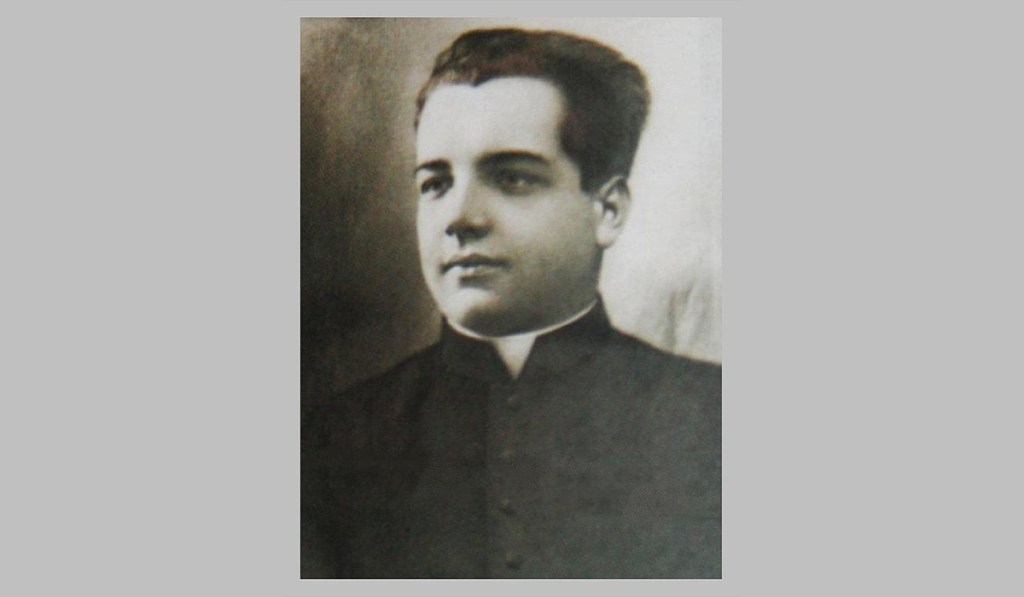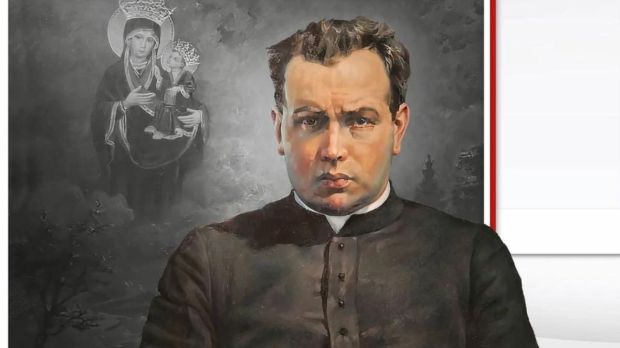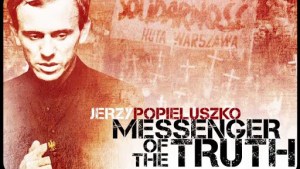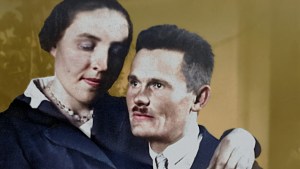Fr. Rapacz was born on September 16, 1904. in Tenczyn, a village located on the route from Krakow to Zakopane, 62 miles from Płoki (Poland). His parents, Marianna and Jan, were farmers with four children.
Michal wanted to learn, so they enrolled him in school. Studying at a school two and a half miles away was a challenge. The boy walked the five mile round trip on foot every day, including in the rain and cold.
His education was interrupted by the outbreak of war, but in 1918, Michal returned to school. His parents decided to sell part of the family estate to raise money for their son’s education.
Michal as a young priest
In 1926, he entered the Major Seminary of the Archdiocese of Krakow and was ordained a priest five years later, on February 1, 1931. His father was already dead, but his mom was bursting with pride. Everyone who could went to Cracow for his ordination: Marianna, his mother, his siblings, godparents, numerous relatives, and residents of his home town of Tenczyn. His assignment for his first parish came quickly: Płoki, near Trzebinia.
The young priest, full of enthusiasm, went there in June 1931. He found a poor church, a modest rectory, and people hostile to the Church. But he wasn’t discouraged. He was young and set his sights on the youth.
He spent two years there as curate, and was remembered well and fondly. In 1933 he became pastor in Rajcza. People liked him there so much that they set off with a delegation to the Krakow curia when it became known that he was being transferred. And Fr. Rapacz was given a new assignment—he was to be the parish priest back in Płoki.

Post-war Poland
Płoki is a village in Chrzanów County with a population of less than a thousand. Fr. Rapacz worked there for the duration of World War II.
He led a strict, frugal life. He spent every coin donated by parishioners prudently. During Christmas visits, he would leave money for families who were in need. Thanks to his good knowledge of German, he was a great support to the resistance. He survived the war and avoided death at the hands of the Nazis, but unfortunately, he lived only a year after Poland was liberated.
Already during his first post-war pastoral visit, he realized how deep a mark the war had left in people’s minds. Many no longer distinguished between good and evil. Many, frightened and starved for years, were willing to betray and even hurt people for a few material goods.
The rise of Communism
In 1945, Communist activity in the area was so great that local activists even made a proposal to annex Poland to the USSR. After the national congress of the Polish Workers’ Party, hostility towards its political opponents increased. Above all, priests who had supported the Home Army during the war and were distrustful of the new authorities after the war were targeted by the authorities. Among them was Fr. Michal Rapacz.
The priest’s first dispute with the authorities concerned parish buildings. The Communists demanded that they be handed over for the Union of Rural Youth to operate there. But the priest refused to give them up. The parish halls were needed, especially for the young, so that they would have a place to meet. The atmosphere became tense. And so in Trzebinia, at one of the Party meetings, the decision was made to get rid of the stubborn priest.
A dozen against one
The drama unfolded on the night of May 11-12, 1946, with more than a dozen men invading the rectory. First they intimidated the household members. They threw them on the floor, then dragged the priest to an upstairs room.
There they interrogated him, asked about his contacts with the Home Army, and attempted to blackmail him and demanded money. They locked Fr. Michal’s sister, Katarzyna, in a room so that she could not bring help.
After some time, they led the priest out in front of the house, tied a rope around him, and ordered him to crawl around the church. It’s unknown how many times he was ordered to circle the building, but it is certain that he was beaten and kicked.
After this torture, he was led to a forest two thirds of a mile away from the rectory. There, in the dark, the torturers put him under a tree. One of them hit him on the head. It was a powerful blow, and the priest could barely stay on his feet. Then they shot him: once in the side of the head, and again, just in case, in the middle of the forehead, when the priest was already lying on the ground.
Martyr
After the night of torment, Sunday came. People came to the morning Mass and found no priest. At the rectory, they learned from the people imprisoned there about the drama that had taken place during the night. They began to search.
At the same time, people herding cattle to pasture noticed a body at the edge of the forest. It was the parish priest from Płoki, dead, with torture marks and a shattered skull. Two shell casings were found next to him, fired—as it later turned out—from a Russian 6mm revolver and an 8mm Colt.
After the discovery of the priest’s corpse and the initial fact-finding that he had been brutally murdered, the village was divided in its assessment of what had occurred. Some were convinced that the priest had suffered a martyr’s death, wetting their handkerchiefs in the pool of blood and bravely carrying them home. They were shocked that people had killed him. But there were others who were happy that the stubborn priest had got what was coming to him.
A murder with no arrests
After the discovery of the corpse, the murder investigation began, but from the beginning it was conducted in such a way as to prove nothing. Today there is no trace of the investigation in the archives. And although there were as many as 20 people suspected of committing the crime, the conspiracy of silence won out, and to this day we know neither the names of the perpetrators nor who sent them.
Fr. Michal has not been forgotten by anyone in Ploki. The Dicastery for the Causes of Saints promulgated the recognition of his martyrdom on January 24, 2024.



